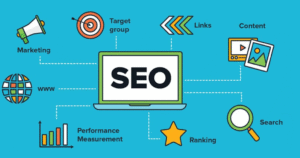Key Components of AI Integration Services Every Business Should Consider
Introduction Artificial Intelligence (AI) is no longer a futuristic concept it’s a practical necessity for modern businesses. From customer service...

Introduction
Artificial Intelligence (AI) is no longer a futuristic concept it’s a practical necessity for modern businesses. From customer service automation to predictive analytics and process optimization, AI is transforming how organizations operate. However, adopting AI isn’t just about buying technology; it’s about integrating it strategically into your workflows. That’s where AI implementation services come in.
These services help companies seamlessly integrate AI into their operations, ensuring scalability, accuracy, and long-term success. In this blog, we’ll explore the key components of AI integration services that every business leader should understand before starting their AI journey.
1. Comprehensive AI Strategy Development
The first step in AI integration is defining a clear strategy. AI implementation services typically start by analyzing business needs, existing infrastructure, and future goals.
- Identifying business challenges where AI can deliver value
- Choosing the right AI models (NLP, machine learning, deep learning, etc.)
- Ensuring alignment with organizational objectives
Without a well-structured strategy, businesses risk investing in AI tools that don’t solve the right problems.
2. Data Management and Preparation
AI thrives on data quality and availability. An effective AI implementation service ensures that data is:
- Collected from reliable sources
- Cleaned and pre-processed to remove errors
- Structured for training AI models
Data pipelines, warehouses, and governance frameworks are essential to guarantee accuracy, security, and compliance.
3. AI Model Development and Customization
Every business has unique needs. Off-the-shelf AI models may not always work effectively. A professional AI service provider will:
- Build or customize models tailored to your business
- Train models using historical and real-time data
- Continuously fine-tune performance based on feedback
This ensures your AI system evolves with your business and market changes.
4. Seamless System Integration
The true challenge of AI lies in integrating it with existing systems like CRM, ERP, or cloud platforms.
AI implementation services ensure smooth integration so that:
- Employees can easily use AI tools without disruptions
- AI enhances existing workflows instead of replacing them
- Businesses achieve faster ROI from AI investments
5. Scalability and Cloud Deployment
AI must be scalable to support growing business needs. Cloud-based integration is often preferred as it:
- Allows businesses to scale resources on demand
- Provides access to global AI infrastructure
- Offers better performance monitoring and optimization
Providers like AWS, Microsoft Azure, and Google Cloud play a huge role in enterprise-scale AI integration.
6. Security and Compliance
As AI systems handle large volumes of sensitive data, security is critical. AI implementation services include:
- End-to-end encryption
- Role-based access controls
- Compliance with GDPR, HIPAA, and other regulations
This ensures businesses can adopt AI without compromising on data privacy and trust.
7. User Training and Change Management
AI is powerful, but its impact depends on how well employees adapt. AI implementation services often include:
- Training sessions for staff to understand new AI tools
- Change management strategies to reduce resistance
- Ongoing support for troubleshooting and upgrades
This human-centric approach guarantees better adoption and maximum ROI.
8. Continuous Monitoring and Optimization
AI systems aren’t “set-and-forget.” They require continuous monitoring to stay relevant. Implementation partners provide:
- Performance tracking dashboards
- Regular model updates
- Bug fixes and scalability enhancements
This ensures the AI solution remains efficient, accurate, and competitive.
9. Industry-Specific Customization
Different industries require different AI applications. For example:
- Healthcare: AI for medical imaging, diagnostics, and patient management
- Retail: Predictive analytics for demand forecasting and personalized recommendations
- Finance: Fraud detection and real-time risk analysis
- Manufacturing: Smart automation and predictive maintenance
An experienced provider tailors AI integration for maximum industry relevance.
10. Future-Proofing AI Investments
The AI landscape evolves rapidly. Implementation services ensure businesses adopt AI that’s flexible, scalable, and adaptable to new technologies like Generative AI, Agentic AI, and IoT-driven AI.
This future-proofing approach helps organizations maintain a competitive edge.
Conclusion
AI has the power to reshape industries and drive long-term growth, but success lies in how effectively businesses integrate it into their operations. Partnering with the right provider for AI implementation services ensures you get a robust strategy, seamless system integration, scalable solutions, and ongoing support.
By understanding these key components, business leaders can make smarter decisions and unlock the full potential of artificial intelligence in 2025 and beyond.



